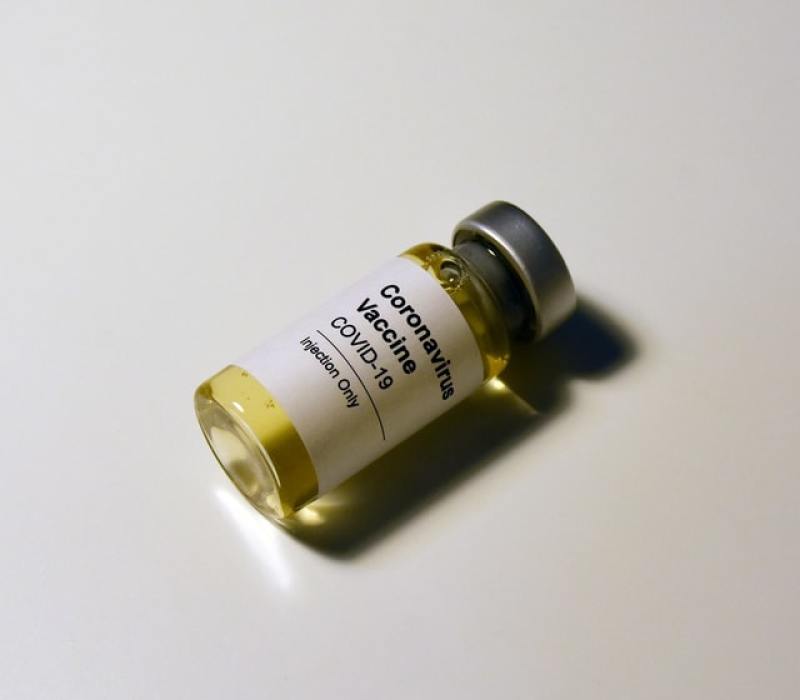
A new revelation has come to light following the controversial Wuhan investigations, an inquiry carried out to determine whether an accident in the Wuhan virology laboratory was indeed the location of the origin of the coronavirus that claimed millions of lives globally.
The investigation was conducted by a team at the World Health Organization (W.H.O.), who spent weeks in Wuhan to determine the true origins of Covid-19.The Associated Press reported that the "closely watched visit" by the W.H.O. investigators didn't result in much, and that it "did not dramatically change the current understanding of the early days of the pandemic."
"The findings suggest that the laboratory incidents hypothesis is extremely unlikely to explain the introduction of the virus to the human population," W.H.O.'s Dr. Peter Ben Embarek, leader of the investigation said of the Wuhan investigations, as per UN News. This is unsurprising, given that the investigation was actually carried out by Chinese authorities and not the W.H.O. team.
The revelation comes from W.H.O. adviser Jamie Metzl, who on Tuesday took to FOX News' "Ingraham Angle" to share some critical information about the Wuhan investigations. Breitbart reported that according to Metzl, "The actual investigation was done by Chinese authorities. And so, the W.H.O. investigators were basically receiving reports from the Chinese officials."
Metzl explained that contrary to what many thought was an in-depth look into the virology lab believed to be the source of the coronavirus, the Wuhan investigations were in fact "very short" and involved "two weeks of quarantine and two weeks of meetings." Metzl revealed,
"The actual investigation was done by Chinese authorities. And so, the W.H.O. investigators were basically receiving reports from the Chinese officials."
In a Newsweek op-ed by Metzl in late January, he wrote that such inquiries into the Wuhan laboratory hinges on "Chinese transparency and goodwill" and "can no longer be considered fully credible unless immediately proven otherwise."
He accused the Chinese of "obfuscation and malfeasance" and highlighted the fact that it has been well over a year since the outbreak and scientists still know little about its origins, unlike the 2003 SARS coronavirus outbreak that was more quickly analyzed because scientists were able to accurately hypothesize how it moved from animals to humans.
Metzl cited a U.S. Embassy document providing details about questionable activity in the Wuhan Institute of Virology (WIV), where the virus is believed to have originated.
The document mentioned the U.S. government has "reason to believe" some inside the WIV became sick before COVID-19 was reported to spread. The symptoms were consistent with both the China virus and common seasonal illnesses.
It also mentioned how the CCP prevented independent journalists, investigators and global health authorities from interviewing WIV researchers, such as those who became ill.
The document also mentioned a few other activities in the WIV, including "secret military activity." The CCP refuses to reveal details, however, as "Secrecy and non-disclosure are standard practice for Beijing."
It is no wonder that the W.H.O. investigators are now left with more questions than answers after the Chinese authorities carried out the Wuhan investigations.
On the other hand, the Chinese government sees the questionable report as a redeeming victory for their country, according to a report from The Washington Post, titled "As WHO coronavirus mission leaves empty-handed, China claims propaganda win."
Per the report, the W.H.O.'s headline announcement saying that the Wuhan laboratory leak was "highly unlikely" was "hailed by Chinese officials and in state media" as a victory and proof that the country was not "hiding secrets or deflecting blame."
The official Reference News highlighted China's "positive, scientific, cooperative attitude" in the face of the Wuhan investigations, which was revealed to be carried out by Chinese authorities and not W.H.O. investigators themselves.
The United States remains reasonably skeptical, however, with White House spokeswoman Jen Psaki committing to gather information independently to avoid rushing to "conclusions that may be motivated by anything other than science."
Former U.S. Secretary of State Mike Pompeo continues to stand by the State Department's earlier report that cited evidence indicating COVID-19 came from a laboratory in Wuhan, where it first spread.




























